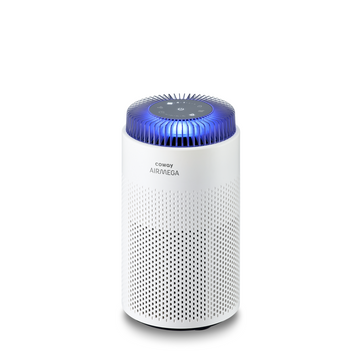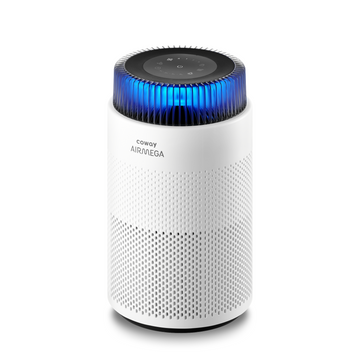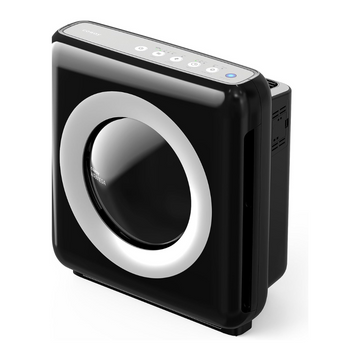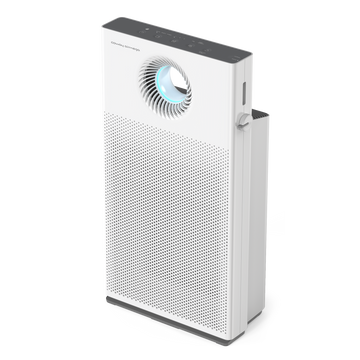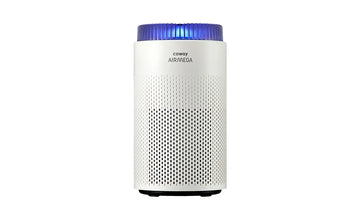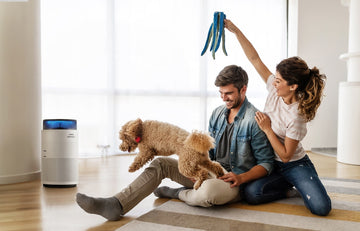As we head into another summer season, the importance of clean, healthy air in our homes and workspaces is more critical than ever. From pollen to dust, and other airborne pollutants, there are many threats to our indoor air quality that can have serious impacts on our health and well-being.
This raises the question: Are air purifiers really worth the investment? In this comprehensive post, we will explore the benefits of air purifiers, how they work, and why having one in your home or office this summer is essential.
What Are the Dangers of Poor Indoor Air Quality?
While we often think of outdoor air pollution as the primary threat to our health, the air quality inside our homes, offices, and other indoor spaces can be just as problematic (if not more so).
Research by DEFRA (Department for Environment, Food & Rural Affairs) has shown that indoor air in many regions of the UK can be more polluted than outdoor air, especially concerning PM2.5 and NO2 levels.
This is particularly concerning given that the average person spends around 80-90% of their time indoors.
Some of the most common indoor air pollutants include:
- Fine particulate matter (PM2.5): These tiny particles, which can come from various sources such as wildfire smoke, vehicle exhaust, and burning candles, have been linked to a range of health issues, including heart disease, lung cancer, and asthma attacks.
- Pollen: Tree, grass, and weed pollen can trigger allergic reactions and exacerbate respiratory conditions like asthma, especially during peak seasons.
- Volatile organic compounds (VOCs): These chemicals, commonly found in cleaning products, furniture, and building materials, can cause eye, nose, and throat irritation, as well as more serious long-term health effects.
- Dust and pet dander: Dust mites and pet dander are major triggers for those with allergies and asthma.
- Mould: Excess moisture in the home can lead to mould growth, which has been associated with respiratory problems, immune system effects, and neurological symptoms.
- Nitrogen dioxide (NO2): Emitted from indoor gas cookers, NO2 can irritate the lungs and lower resistance to respiratory infections, particularly affecting children and individuals with asthma.
Exposure to these indoor air pollutants has been shown to have a range of negative health consequences, from aggravating existing conditions like asthma to increasing the risk of developing new ones like heart disease.
This is especially concerning for vulnerable populations such as children, the elderly, and those with pre-existing respiratory or cardiovascular issues.
The Benefits of Using an Air Purifier in Summertime
Given the very real threats posed by poor indoor air quality, investing in a high-quality air purifier is an excellent way to protect your health and well-being.
Below are some of the key benefits of using an air purifier in your home or office this summer:
Improved respiratory health
Those with respiratory issues can experience greater difficulties breathing during the summertime for a variety of reasons, mainly because hot and humid weather can:
- Inflame airways
- Exacerbate disorders like COPD
- Lead to increased dehydration
- Contain more pollen
- Trigger asthma
One of the primary advantages of an air purifier is its ability to remove a wide range of airborne pollutants that can trigger or exacerbate respiratory problems during the summer.
By filtering out fine particulate matter, pollen, and other allergens, air purifiers can help alleviate symptoms like coughing, wheezing, and shortness of breath for those with asthma or allergies. This is especially important during peak allergy seasons or periods of high outdoor air pollution.
Reduced risk of illness
In addition to improving respiratory health, air purifiers can also help reduce the spread of airborne illnesses. By capturing pollen, bacteria, and other microorganisms, air purifiers can create a cleaner, healthier indoor environment that is less conducive to the transmission of infectious diseases.
This has become increasingly important in the wake of the COVID-19 pandemic, as many people are now more aware of the critical role that indoor air quality plays in preventing the spread of respiratory illnesses.
Improved sleep and productivity
In the summer, our melatonin secretion is shorter than in the winter, which often leads to waking up earlier and sleeping less overall.
Exposure to poor indoor air quality can also lead to worsened sleep and productivity due to increasing fatigue, headaches, and difficulty concentrating. By using an air purifier to remove these pollutants, you can create a more comfortable and productive indoor environment.
Research from the University of Sussex has shown that using an air purifier results in a better quality of sleep, and a longer duration.
Reduced allergen levels
Summer allergies are nothing to joke about. They typically begin in June and last until September, with symptoms ranging from congestion, sneezing, and itchy eyes, among others.
For those who suffer from summer allergies, an air purifier can be a game-changer. By effectively removing pollen, pet dander, and other common allergens from the air, air purifiers can significantly reduce allergy symptoms and the need for medication.
This can lead to improved quality of life and reduced healthcare costs associated with managing allergic reactions.
Fresher, cleaner air
Perhaps most importantly, air purifiers simply make the air in your home or office feel cleaner, fresher, and more enjoyable to breathe, which is particularly important during the summer.
By removing a wide range of pollutants, air purifiers can create a noticeably more pleasant indoor environment that is free from unpleasant odours, hazy air, and the irritating effects of airborne particles.
How Do Air Purifiers Work?
Air purifiers use a variety of filtration technologies to remove airborne pollutants from the indoor environment. The most common and effective types of air purifiers include:
HEPA Filters
HEPA (High-Efficiency Particulate Air) filters are the gold standard in air purification technology. These filters are designed to capture at least 99.97% of airborne particles 0.3 microns or larger in size, including fine particulate matter, pollen, dust, and pet dander, as well as 99.97% of ultrafine particles like bacteria, fungi, and pollen, and include an antimicrobial treatment to deactivate the spread of contaminants.
HEPA filters work by forcing air through a fine mesh screen that traps these microscopic particles, ensuring that only clean, filtered air is circulated back into the room.
Activated Carbon Filters
In addition to a HEPA filter, many air purifiers also incorporate an activated carbon filter. These filters are specifically designed to adsorb (capture and hold) volatile organic compounds (VOCs), odours, and other gaseous pollutants.
Activated carbon is highly porous and has a large surface area, making it extremely effective at trapping these types of contaminants.
Air Purifier Sizing and Placement
To ensure maximum effectiveness, it's important to select an air purifier that is properly sized for the space you intend to use it in. Air purifiers are typically rated for a specific square footage, based on the unit's clean air delivery rate (CADR).
As a general rule of thumb, you'll want an air purifier with a CADR rating that matches or exceeds the square footage of the room you plan to use it in.
In addition to selecting the right size air purifier, proper placement is also crucial. Air purifiers work best when placed in a central location in the room, away from walls and furniture that could obstruct airflow.
Placing the unit near a doorway or window can also help maximise its effectiveness by drawing in more polluted air from the outside. Many air purifiers also feature smart sensors and automatic modes that adjust the fan speed based on real-time air quality monitoring, further optimising performance.
Coway's Size-Specific Solutions
Coway offers a wide range of air purifiers to accommodate spaces of all sizes, from small bedrooms to large open-concept living areas. For example, our product lineup includes but isn’t limited to:
- Airmega 400/400S: Capable of purifying spaces up to 176 m², the Airmega 400 series is a popular choice for medium to large-sized rooms.
- Airmega 300/300S: Suitable for areas up to 149 m², the Airmega 300 series provides reliable air purification for open-concept homes and offices.
- Airmega Mighty: Designed for spaces up to 109 m², the Airmega Mighty series offers advanced filtration in a more affordable package.
- Airmega 150: Ideal for rooms up to 73 m², the Airmega 150 series delivers exceptional performance in a compact, stylish design.
Proper sizing and placement are crucial for maximising an air purifier's effectiveness. We recommend positioning our units in a central location, away from walls and furniture, to ensure optimal airflow and coverage.
Choosing the Right Air Purifier for Your Needs
With so many different air purifier models and technologies on the market, it can be overwhelming to choose the right one for your needs.
Here are some key factors to consider when selecting an air purifier:
- Room size: As mentioned, make sure to choose an air purifier that is properly sized for the space you plan to use it in.
- Filtration technology: Look for air purifiers that incorporate both HEPA and activated carbon filtration, as this combination is the most effective at removing a wide range of pollutants.
- CADR ratings: Pay attention to the clean air delivery rate (CADR) for smoke, pollen, and dust, as these will indicate the purifier's performance in removing different types of airborne particles.
- Noise level: If you plan to use the air purifier in a bedroom or home office, look for models that operate quietly.
- Energy efficiency: Consider the air purifier's energy consumption and look for energy-efficient models to save on your utility bills.
- Smart features: Many modern air purifiers offer advanced features like air quality sensors, remote control, and Wi-Fi connectivity, which can make them more user-friendly and effective.
- Maintenance requirements: Factor in the cost and availability of replacement filters, as well as the ease of cleaning and maintaining the air purifier.
By taking the time to research and compare different air purifier models, you can find the one that best fits your needs, budget, and indoor air quality goals.
Coway's Commitment to Safe Indoor Air
When it comes to selecting the right air purifier, Coway's product lineup offers a solution for every need and budget. Our air purifiers are designed with the customer in mind, featuring a range of advanced technologies, user-friendly features, and sleek, modern aesthetics.
By choosing a Coway air purifier, you can rest assured that you are investing in a high-quality, reliable product that will deliver lasting benefits for your indoor air quality and overall health and well-being.
The Bottom Line: Why You Need an Air Purifier This Summer
In today's world, where indoor air quality poses a serious threat to our health and well-being, investing in a high-quality air purifier is more important than ever. From improving respiratory health and reducing the risk of illness to enhancing sleep and productivity, the benefits of using an air purifier are numerous and far-reaching.
This summer, as we contend with the ongoing challenges of smoke from wildfires, pollen, and other airborne pollutants, having a Coway air purifier in your home or office can be a game-changer. By effectively removing a wide range of contaminants and providing a clean, healthy indoor environment, Coway air purifiers can help you and your family or employees breathe easier and enjoy a higher quality of life.
Don't wait until it's too late—invest in a Coway air purifier today and enjoy the peace of mind that comes with knowing your indoor air is clean, pure, and safe. Your health and well-being are worth it.
Sources
DEFRA - Indoor Air Quality
APIS - Volatile Organic Compounds (VOCs)
Asthma and Lung UK - Hot weather and your lungs
Telegraph Health - How to get a good night’s sleep when it’s hot and light outside
University of Sussex - Can air purification improve sleep quality?
